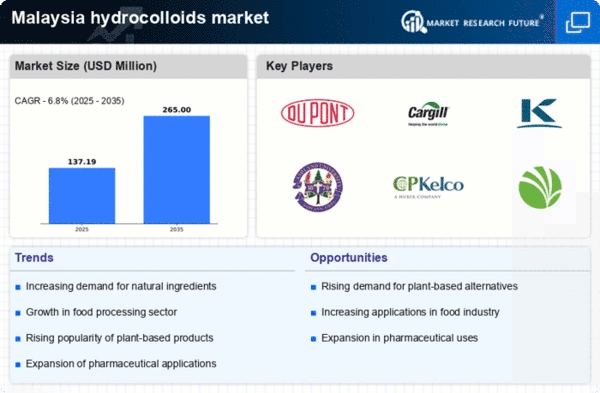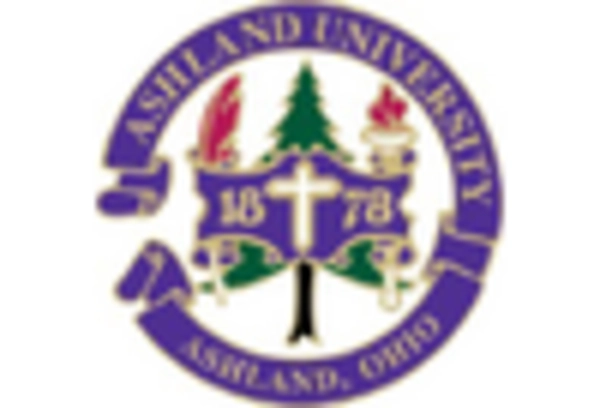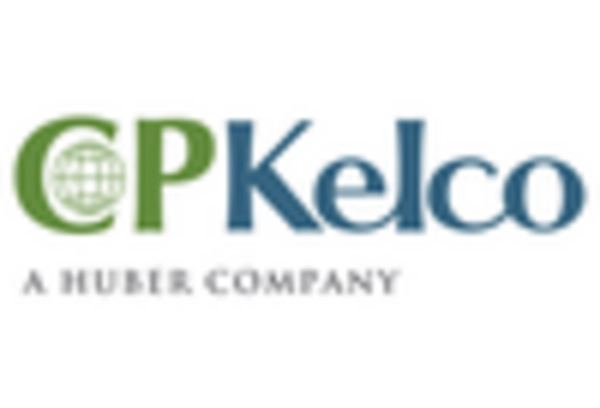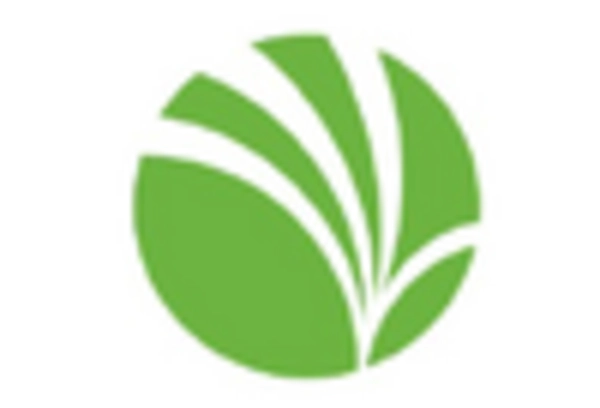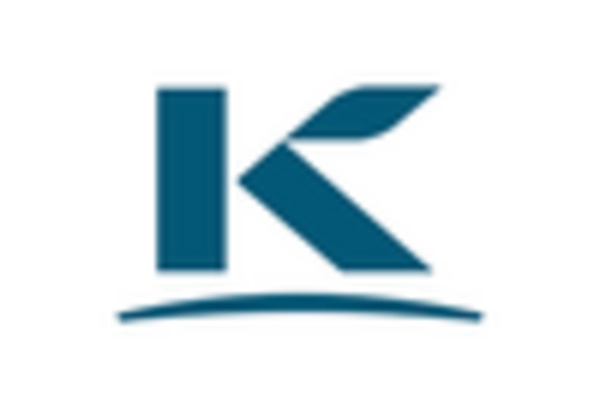Growing Health Consciousness
The increasing awareness of health and wellness among Malaysian consumers is driving the hydrocolloids market. As individuals become more health-conscious, they seek products that offer functional benefits, such as improved digestion and weight management. Hydrocolloids, known for their thickening and gelling properties, are increasingly utilized in food formulations to enhance texture and nutritional value. This trend is reflected in the rising demand for low-calorie and low-fat food products, which often incorporate hydrocolloids to maintain palatability. The market for hydrocolloids in Malaysia is projected to grow at a CAGR of approximately 6% over the next five years, indicating a robust expansion driven by health-oriented consumer preferences.
Expansion of Food Processing Industry
The food processing industry in Malaysia is experiencing significant growth, which is positively impacting the hydrocolloids market. As the demand for processed and convenience foods rises, manufacturers are increasingly incorporating hydrocolloids to improve product stability, texture, and shelf life. The Malaysian food processing sector is expected to reach a value of $30 billion by 2026, with hydrocolloids playing a crucial role in meeting consumer expectations for quality and safety. This expansion is likely to create new opportunities for hydrocolloid suppliers, as food manufacturers seek innovative solutions to enhance their product offerings and cater to evolving consumer tastes.
Rising Popularity of Plant-Based Products
The shift towards plant-based diets in Malaysia is influencing the hydrocolloids market. As consumers seek alternatives to animal-derived ingredients, hydrocolloids derived from natural sources, such as agar and carrageenan, are gaining traction. This trend is supported by a growing number of vegan and vegetarian options in the food sector, which often utilize hydrocolloids for texture and stability. The plant-based food market in Malaysia is projected to grow by 10% annually, indicating a strong demand for hydrocolloids that align with this dietary shift. Manufacturers are likely to invest in research and development to create innovative plant-based products that leverage the unique properties of hydrocolloids.
Increased Investment in Research and Development
The hydrocolloids market in Malaysia is witnessing a surge in investment in research and development activities. Companies are focusing on developing new hydrocolloid formulations that cater to specific consumer needs, such as clean label products and functional ingredients. This trend is indicative of a broader commitment to innovation within the food industry, as manufacturers strive to differentiate their products in a competitive landscape. The Malaysian government is also supporting R&D initiatives, which may further stimulate growth in the hydrocolloids sector. As a result, the market is likely to see a variety of novel hydrocolloid applications, enhancing its overall appeal and functionality in food products.
Technological Advancements in Extraction Methods
Innovations in extraction and processing technologies are enhancing the efficiency and quality of hydrocolloids in Malaysia. Advances in extraction methods, such as enzymatic and ultrasonic extraction, are enabling manufacturers to obtain hydrocolloids with improved functional properties. These technological advancements are likely to reduce production costs and increase the availability of high-quality hydrocolloids in the market. As a result, the hydrocolloids market is expected to benefit from enhanced product offerings that meet the diverse needs of food manufacturers. The integration of technology in hydrocolloid production may also lead to more sustainable practices, aligning with the growing emphasis on environmental responsibility in the food industry.


